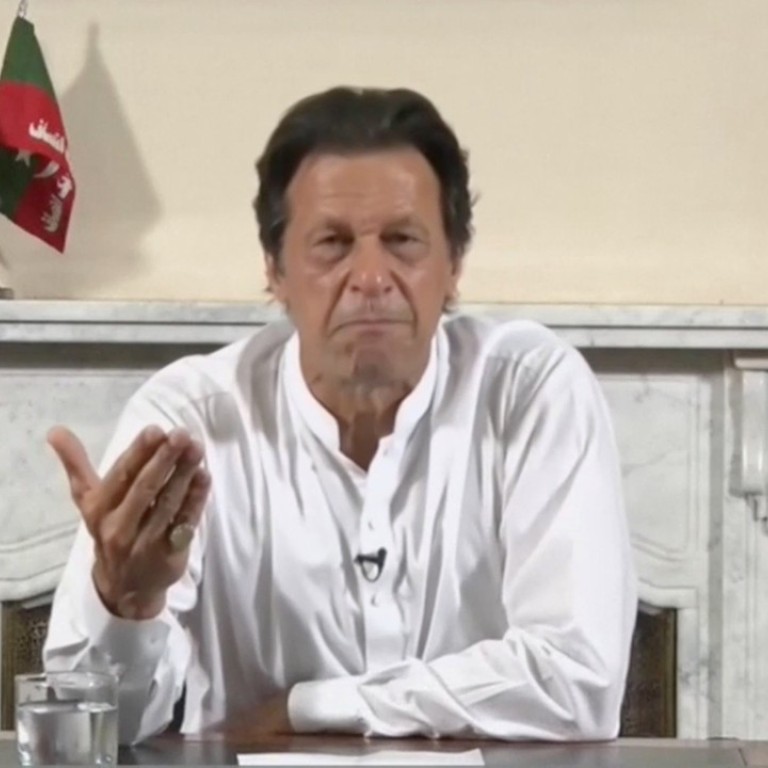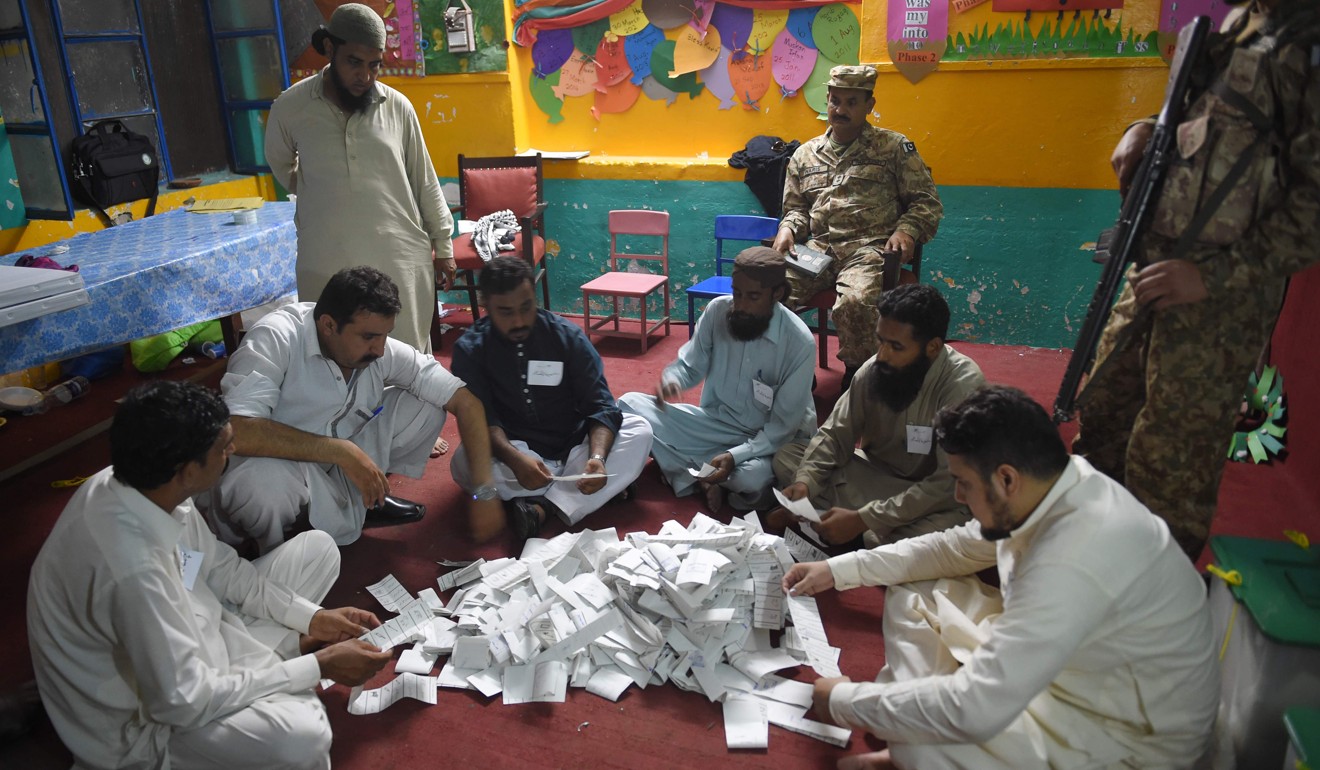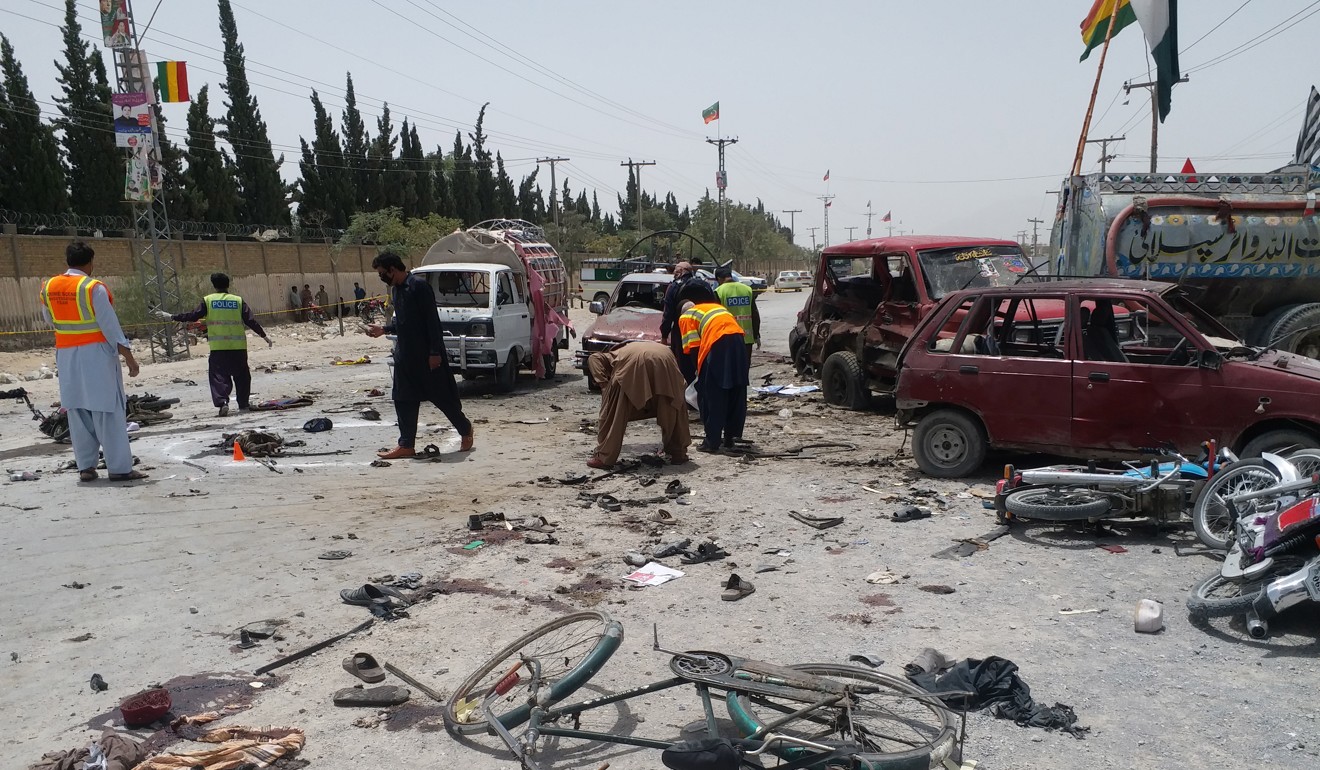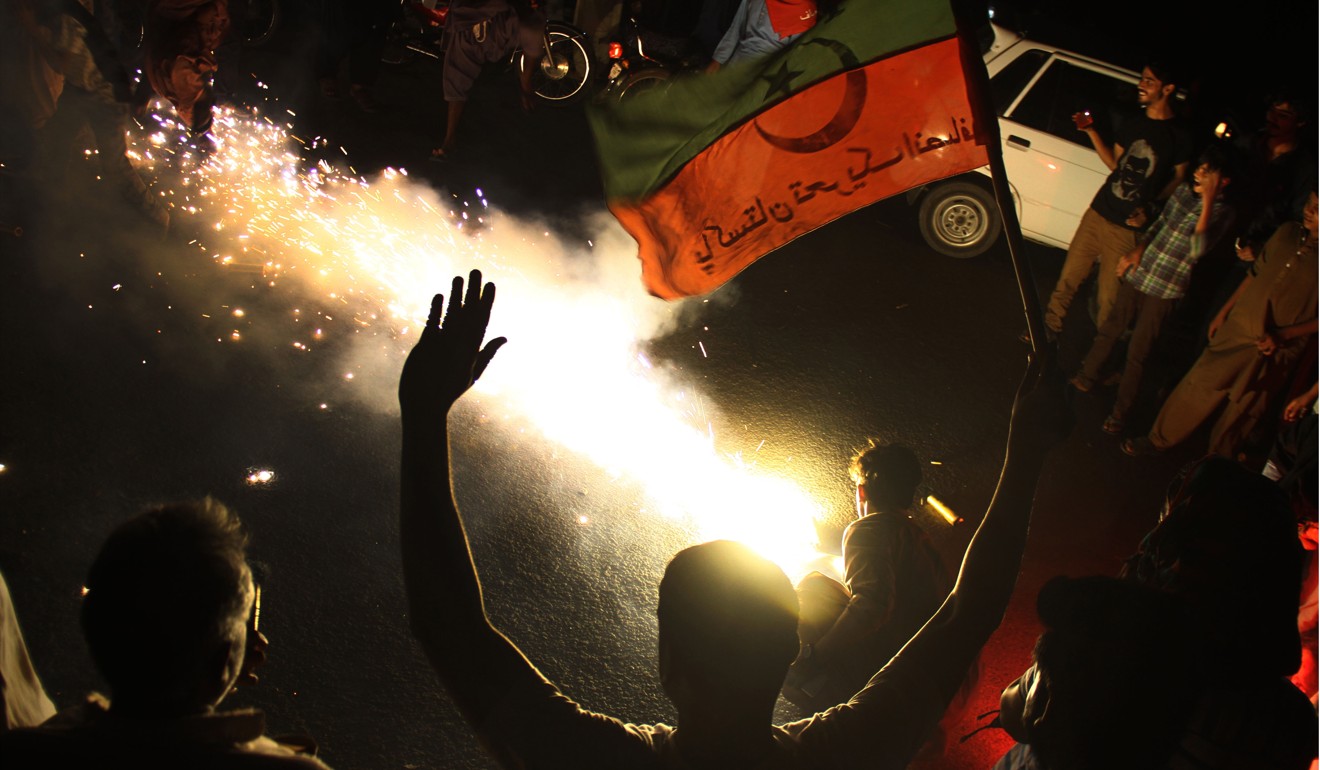
Pakistan’s economic woes, terrorism and complex foreign relations remain. Is a former cricket player up to the task?
C. Uday Bhaskar says Pakistan’s latest election has apparently chosen a former cricket player known for a poor attention span to lead a deeply divided country where a military, beholden to Islamic extremists, has pulled the strings for decades. Islamabad’s backers in Beijing and Washington must be wondering: what could go wrong?
At this time of writing, the PTI (Pakistan Tehreek-e-Insaf), led by the novice political leader Khan, is set to emerge as the single largest party in first-past-the-post elections for the 272 seats in the National Assembly. Coming in a distant second was the PML-N – short for Pakistan Muslim League (Nawaz) – led by the now-imprisoned former prime minister Nawaz Sharif. The PPP (Pakistan Peoples Party), led by the 29-year-old son of another former prime minister, the late Benazir Bhutto, placed third.
Launched in April 1996, the PTI is a relatively young political party compared to the PML and the PPP – traditional rivals in the domestic political arena.

In one of the many ironies embedded in Pakistan’s Sisyphean struggle to uphold democratic principles and civilian rule through the ballot box, every political leader who has become prime minister has had to defer to the Army General Headquarters in Rawalpindi to reach the top. This was true of the late Zulfikar Ali Bhutto in the 1970s and his daughter Benazir (tragically assassinated in 2007 during an election rally), as well as Sharif.
What are the implications and inferences of the Pakistan election? At the outset, the Pakistani election machinery and civil society are to be commended for ensuring that the election took place on schedule despite the many challenges that terrorist-related violence posed (even on the day of polling in Quetta) and the allegations of rigging and booth-capture by the military.

Clearly the PTI has obtained the support of the younger demographic in Pakistan and the yearning for change is palpable. The PML-N had been in the saddle both at the centre in Islamabad and the capital of the largest province Punjab, but the many charges of corruption against the Sharif family and internal discord have weakened the oldest political party of Pakistan.
Voters will seek improved quality of daily life and governance. However, given the fragile state of the national economy, the high public debt ratio and the weakening Pakistani rupee, Khan will have his plate full on assuming office.
But in an extension of the multiple ironies that hobble democracy in Pakistan, the army in turn is beholden to the right-wing religious constituency that was given state support during the Soviet invasion of Afghanistan in December 1979. In the following decades, the Kalashnikov-wielding mujahideen has morphed into the deadly al-Qaeda/Taliban/Islamic State and become the (non-state) tail that wags the dog.
The army and the ISI, its intelligence agency, continue to support terrorist groups, who in turn consider themselves the guardians of the (Sunni) Islamic faith. Both India and Afghanistan have deep reservations about the current turn of events – wherein the new prime minister will be in debt to the army. Furthermore, the army has mortgaged its assets and capability to the terrorist groups operating from Muridke, which is 90km north of Lahore.

Thus, if the Muridke influence on Rawalpindi transmutes into Islamabad continuing to nurture extremist Islamic ideology and shelter terrorist groups – the new prime minister – to use a cricketing analogy – may have to face multiple bouncers from different sides as soon as he comes into bat.
It does not help that the new leader of Pakistan has long been known as “Im the Dim”, thanks to his attention-deficit disorder and his estranged wife’s tell-all revealing a man with deep personality disorders. A nuclear-armed state with effete civilian leadership and an army that is invested in terrorism is disturbing augury.
Commodore C. Uday Bhaskar is director of the Society for Policy Studies, New Delhi. [email protected]

